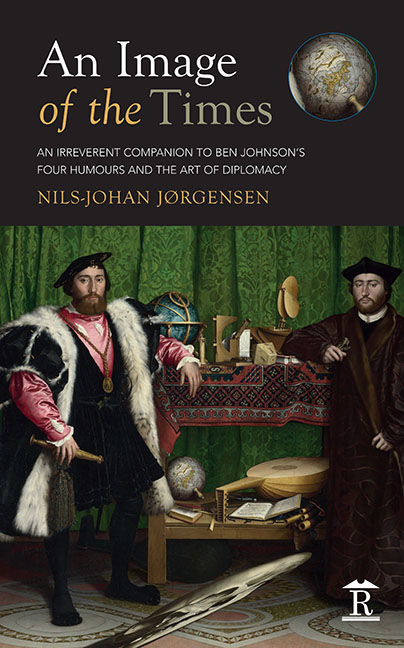Book contents
- Frontmatter
- Dedication
- OTHER WORKS IN ENGLISH BY THE SAME AUTHOR
- Contents
- Acknowledgements
- Induction
- Chapter 1 Ben Jonson and his Sources
- Chapter 2 Humorous Characterization in the Comedies of Ben Jonson
- Chapter 3 The Influence of Jonson on Seventeenth And Eighteenth-century Comedy
- Chapter 4 The Intrusion of Humorous Characterization into the English Novel
- Chapter 5 The Meaning of the Comic
- Chapter 6 Nomadic Humours
- Chapter 7 Unconscious Revelation
- Postscript
- Index
Chapter 1 - Ben Jonson and his Sources
Published online by Cambridge University Press: 06 May 2022
- Frontmatter
- Dedication
- OTHER WORKS IN ENGLISH BY THE SAME AUTHOR
- Contents
- Acknowledgements
- Induction
- Chapter 1 Ben Jonson and his Sources
- Chapter 2 Humorous Characterization in the Comedies of Ben Jonson
- Chapter 3 The Influence of Jonson on Seventeenth And Eighteenth-century Comedy
- Chapter 4 The Intrusion of Humorous Characterization into the English Novel
- Chapter 5 The Meaning of the Comic
- Chapter 6 Nomadic Humours
- Chapter 7 Unconscious Revelation
- Postscript
- Index
Summary
CLASSICAL LITERARY SOURCES
Decorum
Who soever hath bene diligent to read advisedlie over, Terence, Seneca, Virgil, Horace … he shall easily perceive, what is fitte and decorum in evrie one.
DECORUM SETS DOWN that characters in plays must behave according to their age and social position, to be defined in a fixed way by the playwright and remain within these limits. Cicero defined the Latin term decorum, based on a Greek word used by Pythagoras to indicate balance and appropriateness: ‘In an oration, as in life, nothing is harder than to determine what is appropriate. The Greek call it kairos; let us call it decorum.’ Aristotle had used a similar concept, to prepon, to denote decorum.
The static identity of decorum may seem anathema to serious characterization and development, what you see in the beginning is what you get in the end. Indeed, such dramatic propriety could appear suffocating, a limitation and fencing in of the creative process, but inside the wall great comedy appeared as the expanding elements fused with a new artistic decorum.
The search for Jonson's sources begins in his library, but as Vulcan (fire) and Necessity (poverty), as he himself admits, took an unfair share of the grant he had received from Lord Pembroke, many books in the original library collection have disappeared from the records. What remains is still comprehensive and impressive. This rare stage scholar was an omnivorous reader. At the same time, his approach to books and sources made him both selective and dogmatic. His choices reveal distinct preferences and an essential part of the focus lies in the field of classical literature and neo-classical literary theory. Works by Aristophanes, Terence, Aelius Donatus, Erasmus, Julius Caesar Scalinger, Martin de Roa, Juan Luis Vives, Daniel Heinsius and George Puttenham were found on the shelves, as were works by Aristotle, Cicero and Horace.
Of particular interest is the annotated fifteenth century manuscript of Horace's Ars Poetica, a letter, an epistle, a reflection on art and literary propriety. The closest I got inside Jonson's own library was to hold in my hand this book from his collection. It is an important source to help understand his preoccupation with the ancient masters of Greece and Rome, how they would influence his writing and his humorous characters.
- Type
- Chapter
- Information
- An Image of the TimesAn Irreverent Companion to Ben Jonson's Four Humours and the Art of Diplomacy, pp. 1 - 54Publisher: Amsterdam University PressPrint publication year: 2015



